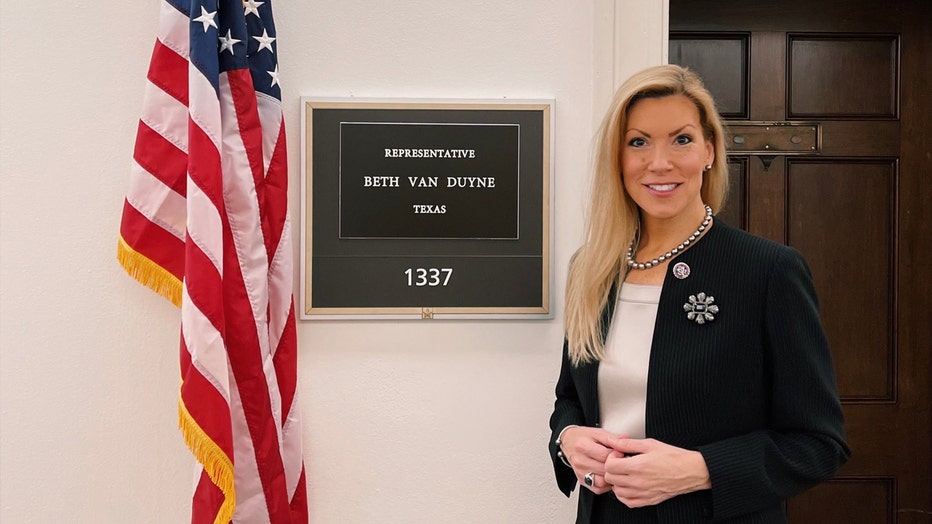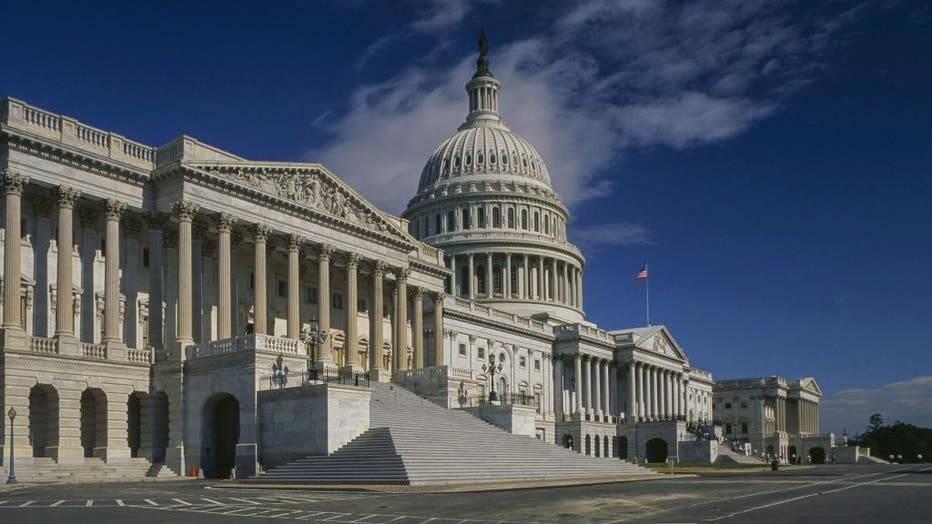Congress convenes with the most women in its history, including one new North Texas representative

Congress convenes with the most women in its history, including one new North Texas representative
The new Congress convened Sunday, and the 117th U.S. Congress was sworn-in with the most women in history.
WASHINGTON - The new Congress convened Sunday, just two days after lawmakers ended their contentious previous session and with COVID-19 guidelines requiring testing and face coverings for House members.
The 117th U.S. Congress was sworn-in with the most women in history.
The House will also have its most Republican women members, including former Irving mayor, Rep. Beth Van Duyne.

"I cannot tell you how humbled and the amount of support I've gotten over the years from so many people and how hard it was to get here but quite honestly; we have a lot of work to do," she said.
Van Duyne is the second Republican woman in Texas to be elected to the House. Kay Granger was the first.
While there is new hope with the rollout of the COVID-19 vaccines, new cases and hospitalizations continue to rise across the nation.
People are starting to get $600 stimulus checks and unemployment benefits from the bi-partisan bill passed by last year’s Congress.
RELATED: Congress starts new session amid COVID pandemic, Biden's win
[REPORTER: "When it comes to the coronavirus, do you think another compromise bill will need to be passed soon?"]
"In the interim, what we need to make sure we are doing is getting the people who need the help the most. The small businesses that have been shut down through no fault of their own that are unable to pay their rent, unable to pay their employees and keep them on staff," Van Duyne responded. "We need to get help to them as soon as possible. It needs to be timely help, it needs to be targeted."

Capitol Building, seat of United States Congress, 1827, Washington DC, District of Columbia, United States of America, 19th century.
SMU political science professor Matthew Wilson said with divided government, a more targeted stimulus is the best approach for President-elect Joe Biden.
"If he goes for limited, targeted relief, he's got a chance. If he tries to put through a massive bill with bailouts for state and local governments and indiscriminate paychecks for people, that is less likely to get passed," he said.
On Wednesday, all eyes will be on Congress, as members from the House and Senate will object to the presidential election results.
[REPORTER: "Will you or will you not object on Wednesday?"]
"I think there are a number of states that did not follow their own laws," Van Duyne said. "It becomes a constitution issue when they are not following the constitution. So for those states that are not following the law, I will be objecting."
Wilson said there is a difference between wanting to improve voting procedures, but an objection to the results is unproven because there has been no substantial evidence of voter fraud.
"We have to be careful not to confuse legitimate concerns about some procedural matters with the election, with a genuine doubt about who the winner was," he added.

